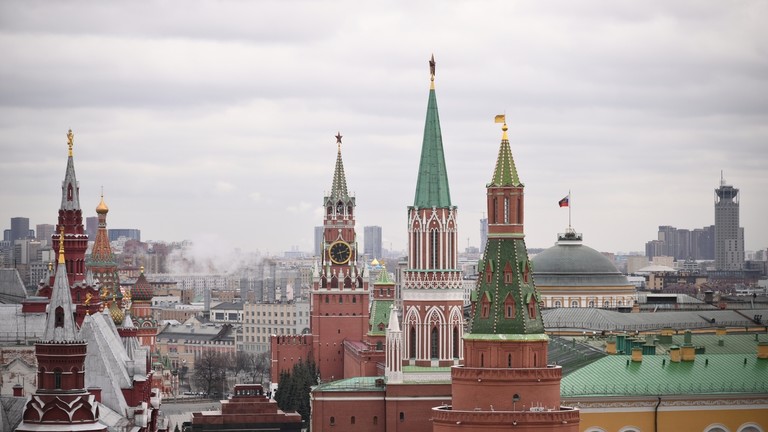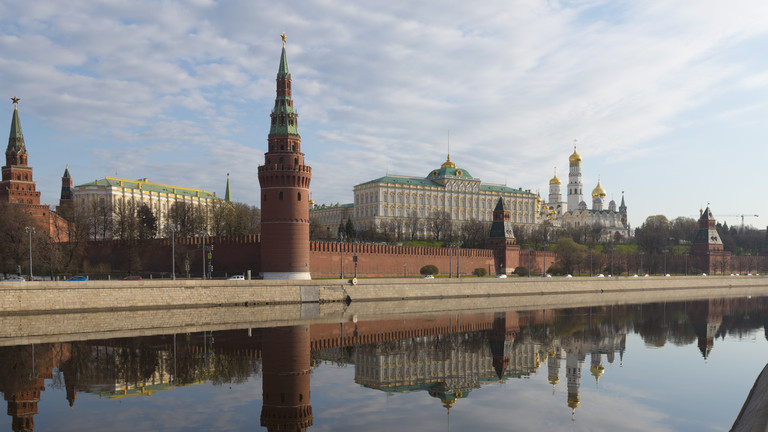The Kremlin has released a comprehensive list of energy facilities subject to a temporary US-brokered truce between Russia and Ukraine. The pause in long-range strikes against such targets took effect on March 18 and will last for 30 days, according to Moscow.
The types of facilities covered under the truce include oil and gas processing and storage facilities, including pumping stations and pipelines, electricity producing and distribution sites, nuclear power plants, and the dams of hydroelectric plants.
The truce may be prolonged beyond the 30-day period should both sides agree, Moscow noted. If either party violates the deal, the other can consider itself free from its obligations, it added.
The suspension of strikes was originally proposed by Trump to Russian President Vladimir Putin during a phone call last week. The Russian leader agreed to it and immediately ordering the country’s military to halt attacks on Ukrainian energy facilities. The Russian military later said it had to shoot down seven kamikaze drones that were already en route to targets in Ukraine in order to implement the order.
Zelensky publicly backed the idea of the truce shortly after it was first announced. However, Moscow accused Kiev of violating the ceasefire almost immediately, claiming that multiple energy facilities in Russia had been targeted by Ukrainian drones over the past week.
On Monday, the Caspian Pipeline Consortium (CPC) condemned a Ukrainian attack on the Kropotkinskaya oil pumping station, a vital energy site in Russia’s Krasnodar Region. CPC operates a major pipeline system carrying crude oil from the oil fields in Kazakhstan and Russia’s Caspian region to the Russian Black Sea port of Novorossiysk and on global markets. The project is jointly owned by several stakeholders from Russia, as well as such US oil giants as Chevron and ExxonMobil.
“The actions of the Ukrainian authorities have a destructive impact on CPC’s financial results and, as a consequence, on all of its shareholders, including the Republic of Kazakhstan and companies from the United States,” the consortium said in a statement.
Russia and US agree to key maritime initiative – Kremlin
Russia and the US have committed to advancing the Black Sea Initiative as a step towards settling the Ukraine conflict, according to a statement released by the Kremlin on Tuesday.
The agreement follows the 12-hour talks focused on the Ukraine conflict held on Monday in Saudi Arabia by expert groups from the two countries.
The sides discussed steps to ensure safe navigation in the Black Sea, including a pledge to avoid the use of force and prevent commercial vessels from being used for military purposes, while agreeing on control measures such as ship inspections.
The US has vowed to “help restore access for Russian agricultural and fertilizer exports to the world market, reduce the cost of insurance for maritime transportation, and enhance access to ports and payment systems for such transactions,” according to the Kremlin statement.
The agreement envisions lifting restrictions on Russian Agricultural Bank and other financial institutions involved in international trade of food and fertilizers, including reconnecting them to the SWIFT payment system. It also includes removing sanctions on Russian-flagged vessels, port services, and the supply of agricultural machinery and related goods to Russia.
According to the statement, Moscow and Washington have also agreed to develop measures to enforce the 30-day ban on strikes against energy infrastructure in Russia and Ukraine that was agreed last week. There would be an option to extend the arrangement or abandon it if either side fails to comply.
The two sides also welcomed the involvement of third countries in supporting agreements on energy and maritime matters.
The US and Russia “will continue efforts to achieve a lasting and sustainable peace,” the statement concludes.
Originally brokered in July 2022 by the UN and Türkiye, the Black Sea Grain Initiative aimed to ensure the safe passage of Ukrainian agricultural exports in return for the easing of Western restrictions on Russia’s grain and fertilizer trade. Moscow did not renew the deal in 2023, citing the West’s failure to uphold its commitments.



No comments:
Post a Comment